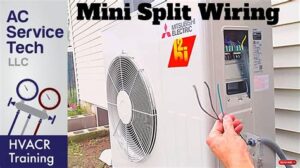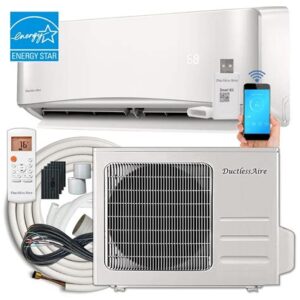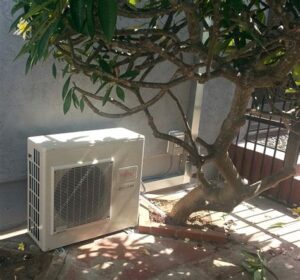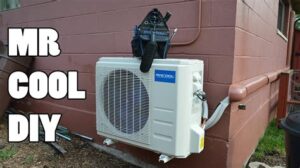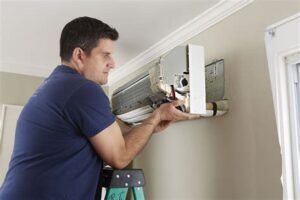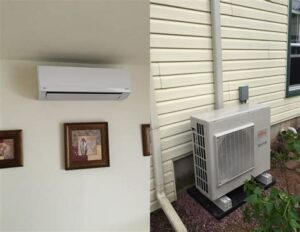Explore mini split systems, learn about permits for HVAC installation, understand risks, discover legal options, and seek professional assistance for your installation needs.Installing a mini split system can be an appealing option for many homeowners seeking efficient heating and cooling solutions. However, the process is not as straightforward as it may seem, particularly when it comes to obtaining the necessary permits. Understanding the nuances of mini split systems and the importance of permits is crucial to ensure a smooth installation experience. Skipping this step can lead to significant risks, including fines and complications with home insurance. In this blog post, we will explore the intricacies of mini split installations without permits, the potential repercussions, and viable alternatives for ensuring your system is legally installed. Whether you’re a DIY enthusiast or just starting to consider your options, we’ll guide you through the landscape of mini split installations to help you make informed choices.
Understanding Mini Split Systems
A mini split system is a type of heating and cooling system that offers flexible climate control for residential and commercial spaces. Unlike traditional HVAC systems, mini splits do not require ductwork, making them an excellent option for homes without existing ducts or for individual room climate control.
These systems consist of two main components: the indoor unit, which is responsible for distributing the conditioned air, and the outdoor unit, which houses the compressor and condenser. Mini splits are known for their energy efficiency, ease of installation, and ability to provide both heating and cooling.
One of the notable features of mini split systems is their zoning capability, allowing users to control the temperature of different areas independently. This can substantially improve comfort while reducing energy costs, as you can heat or cool only the rooms that are in use.
| Feature | Benefit |
|---|---|
| Energy Efficiency | Lower utility bills and environmental impact. |
| Flexible Installation | No ductwork required, ideal for various spaces. |
| Zoning Capability | Individual room temperature control enhances comfort. |
Overall, understanding how mini split systems work can help homeowners make informed decisions regarding their HVAC installation options. However, it’s essential to consider local regulations and the necessity of permits when planning any HVAC installation project.
Importance of Permits for HVAC Installation
When undertaking any significant home improvement project, especially something as complex as HVAC installation, the importance of permits cannot be overstressed. Permits are not just bureaucratic formalities; they ensure that the installation is done safely, meets local building codes, and preserves the integrity of your home.
In many jurisdictions, failing to acquire the necessary permits for HVAC installation could lead to serious consequences. This includes fines, the possibility of having to redo the installation at your own cost, or worse, making your home uninsurable if something goes wrong. To give you a clearer picture, here are some key reasons why permits are essential:
| Reason | Description |
|---|---|
| Compliance with Codes | Permits ensure that your HVAC system meets local safety and building codes. |
| Safety Assurance | Licensed inspectors review the installation, ensuring it is safe for your home and family. |
| Future Resale Value | Proper permits can increase your home’s value and appeal to potential buyers. |
| Insurance Protection | Having a permit can protect you from denial of insurance claims related to HVAC issues. |
Moreover, obtaining the correct permits allows local authorities to track the quality of work done in the community, contributing to overall neighborhood safety. Systems installed without a permit can lead to significant problems down the road, as they may not adhere to the necessary safety protocols.
In summary, understanding the importance of permits in HVAC installation is crucial for a safe and compliant home. Investing the time and resources to obtain these permits is a decision that pays off in the long run, saving you from potential legal issues and ensuring the longevity of your HVAC system.
Risks of Installing Without a Permit
When considering a new HVAC installation, many homeowners may overlook the importance of obtaining the proper permits. However, installing without a permit can expose you to a multitude of risks that can have long-lasting consequences.
Firstly, one major risk is the potential for legal repercussions. Many local governments require permits for major installations, including mini-split systems. If you proceed without securing the proper permits, you may face fines or even be required to remove the system if it does not meet code requirements.
Additionally, installing a mini-split system without a permit can impact your home insurance. In the event of a claim related to your HVAC system, your insurance provider may deny coverage if the installation was performed illegally. This can leave you financially vulnerable in the event of damage or failure.
Lastly, another significant risk involves safety hazards. Permits ensure that installations comply with safety standards that protect both your home and its occupants. By skipping the permit process, you may inadvertently create conditions that jeopardize the safety of your household.
For these reasons, it’s crucial to fully understand the risks associated with installing a mini-split system without a permit and consider the long-term implications it may have on your property and peace of mind.
Alternative Options for Legal Installation
When considering an HVAC installation, particularly for mini split systems, it’s essential to explore alternative options for ensuring a legal installation. Skipping permits may save you time and money initially, but it can lead to significant legal and financial troubles down the road. Here are several alternatives that can help you comply with local regulations:
- Hire a Licensed Contractor: Engaging a licensed HVAC contractor is one of the best ways to ensure your installation complies with local codes. These professionals understand the permitting process and handle the necessary paperwork on your behalf.
- Consult Local Authorities: Reach out to your city or county’s building department to inquire about the specific requirements for your HVAC installation. They can guide you through the permit process and regulations to follow.
- Explore DIY Permits: If you’re considering a do-it-yourself installation, check whether DIY permits are available in your area. Some jurisdictions allow homeowners to pull their own permits for specific types of installations.
Each of these options provides a pathway to achieving a compliant HVAC setup. It’s crucial to remember that taking the proper steps not only protects you from fines but also ensures safety and efficiency in your home.
Moreover, checking for any available financial incentives or rebates for using licensed contractors can also make legal installation more affordable. Many utility companies offer programs designed to encourage residents to adhere to local laws.
Before proceeding with any HVAC installation, remember that the cost of getting caught without a permit can significantly outweigh the effort it takes to follow regulations. Prioritize legality and safety to enjoy your mini split system worry-free!
Seeking Professional Assistance
When it comes to installing a mini split system or any other type of HVAC system, it’s pivotal to consider the benefits of seeking professional assistance. Not only can expert technicians ensure a proper installation, but they can also help navigate the complexities of local building codes and permits.
Hiring professionals means relying on their experience and knowledge about the nuances involved in HVAC installations. They can install your mini split efficiently while ensuring that all safety protocols are followed. This is particularly important because an incorrectly installed system can lead to various issues, including energy inefficiency and potential hazards.
Moreover, licensed technicians are typically well-versed in the legal requirements for residential installations, ensuring that you are not at risk of facing fines or compliances issues that could arise from a DIY installation or an installation done without the necessary permits. Engaging with professionals ultimately saves you time, money, and the stress associated with navigating the intricacies of HVAC regulations.
Frequently Asked Questions
What is a mini split system?
A mini split system is a type of heating and cooling system that consists of an outdoor compressor unit and one or more indoor air handling units, which provide temperature control for individual rooms or zones.
Why might someone consider installing a mini split without a permit?
Some homeowners may consider installing a mini split without a permit to save time and money, especially if they believe their installation will not be detected by local authorities.
What are the risks of installing a mini split without a permit?
Installing without a permit can lead to legal issues, fines, and may void warranties. Additionally, improper installation can cause safety hazards and inefficient operation.
How can I determine if I need a permit for my mini split installation?
Check with your local building department or zoning office for specific regulations regarding HVAC installations. They can provide guidance based on your location and project.
What factors should I consider when installing a mini split system?
Consider the size and layout of your space, the system’s efficiency rating, the installation location, and whether you can handle the electrical and refrigerant line work required.
Are there alternatives to installing a mini split without a permit?
Yes, you can hire a licensed contractor who can ensure your installation complies with local codes and handle any necessary permits for you.
What are the benefits of obtaining a permit for mini split installation?
Securing a permit ensures the installation meets safety and code standards, enhances the resale value of your home, and protects you from potential legal issues.
